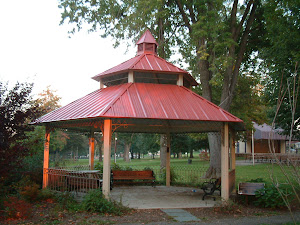PDF - PASD Swine Flu letter to parents
http://www.pasd.k12.pa.us/Documents/2009-09-11%20Swine%20Flu%20Letter%20to%20Parents.pdf
During the next few weeks and into the months of the 2009 flu season the public must take advantage of the opportunity to learn the difference between seasonal flu and H1N1 swine flu, and how to prevent or minimize exposure to the virus.
In a series of articles on the subject, I will provide information from expert sources and examine the plans by local officials in the Phoenixville area as well as the state of Pennsylvania to prepare for and respond to the possible H1N1 swine flu pandemic.*
Our individual family health is a critical priority, and the single most important factor in maintaining your health during a pandemic is prevention.
The commonsense basics of good health care include eating a balanced diet, daily exercise, and developing good sleeping habits.
Stop the spread of germs by washing hands frequently with soap and water.
Cover sneezes with tissues and direct a cough into a bent elbow.
Stay home and away from others as much as possible if you are sick.
Drink plenty of fluids every day.
Consider scheduling vaccination for the seasonal flu and for the H1N1 virus when it becomes available.
Familiarize yourself with the symptoms of H1N1 swine flu.
"The symptoms of novel H1N1 flu virus in people are similar to the symptoms of seasonal flu and include fever, cough, sore throat, runny or stuffy nose, body aches, headache, chills and fatigue. A significant number of people who have been infected with novel H1N1 flu virus also have reported diarrhea and vomiting.
The high risk groups for novel H1N1 flu are not known at this time, but it’s possible that they may be the same as for seasonal influenza. People at higher risk of serious complications from seasonal flu include people age 65 years and older, children younger than 5 years old, pregnant women, people of any age with chronic medical conditions (such as asthma, diabetes, or heart disease), and people who are immunosuppressed (e.g., taking immunosuppressive medications, infected with HIV).
Emergency Warning Signs
If you become ill and experience any of the following warning signs, seek emergency medical care.
In children, emergency warning signs that need urgent medical attention include:
Fast breathing or trouble breathing
Bluish or gray skin color
Not drinking enough fluids
Severe or persistent vomiting
Not waking up or not interacting
Being so irritable that the child does not want to be held
Flu-like symptoms improve but then return with fever and worse cough
In adults, emergency warning signs that need urgent medical attention include:
Difficulty breathing or shortness of breath
Pain or pressure in the chest or abdomen
Sudden dizziness
Confusion
Severe or persistent vomiting
Flu-like symptoms improve but then return with fever and worse cough"
(Source: CDC http://www.cdc.gov/h1n1flu/sick.htm
* DISCLAIMER:
Do not use this website or any other website to self-diagnose your condition. I am not a physician. Please call your doctor with any questions.
Subscribe to:
Post Comments (Atom)


1 comment:
What do you get when you cross the bird flu with the swine flu?
ANSWER: THE FLYING PIG FLU.
LOL
Post a Comment